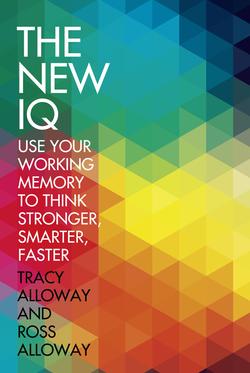Читать книгу The New IQ: Use Your Working Memory to Think Stronger, Smarter, Faster - Tracy Alloway - Страница 42
Managing Information
ОглавлениеAnother major stress on our working memory is information overload: too much information can overwhelm our working memory.
One interesting study that shows this effect was conducted by researchers at Washington State University, who wanted to look at how information overload can affect financial decisions. They gave participants a gambling task. They were presented with four decks of cards; some cards won them money, and some lost them money. Remembering what they’d won and comparing it with the cards they had turned over, the best players were able to determine quickly which decks were able to win them the most money and which decks were to be avoided because of losing cards. But when players were also given random sequences of numbers to remember, it took them longer to distinguish between the winning and losing decks, and they ended up losing more money. This shows that too much information can make you a bad investor.
This is all the more true on Wall Street. If you’ve ever seen the bank of flashing screens at a broker’s desk, you have a sense of the information overload they are up against. When deciding whether to invest in a company, for example, they may take into account the people at the helm; the current and potential size of its market; net profits; and its past, present, and future stock value, among other pieces of information. Weighing all of these factors can take up so much of your working memory that it becomes overwhelmed. Think of having piles and piles of papers, sticky notes, and spreadsheets strewn about your desk, and you get a picture of what’s going on inside the brain. When information overloads working memory this way, it can make brokers—and the rest of us—scrap all the strategizing and analyses and go for emotional, or gut, decisions.
This same breakdown in our analysis and decision making can happen to any of us when we’re overwhelmed by a tsunami of information at work. It can lead us to make emotional decisions at times when strategic thinking matters most, such as when choosing a new vendor. For example, if you interview all twenty-three candidates who expressed interest in the project rather than narrowing down the candidate pool to five or fewer, your Conductor may lose track of all the data about their past work experience and qualifications so you end up tossing all that valuable information out the window and going with your gut. You choose the guy who’s an Arsenal fan because you’re a huge Arsenal fan too. That’s not the smartest move.
Children are just as likely to suffer this same type of working memory overload when they are overwhelmed with information at school. When teachers introduce too much material at once, the Conductor loses control. This can cause even the brightest students to stop reasoning and start guessing on tests.
Too much information can even lead to what we call catastrophic loss of working memory. Our friend Sam was recently made redundant from his job because his company downsized. He had a six-month parachute to regroup and seek out new opportunities, but every time he sat down in front of his computer, he got distracted and overwhelmed. He would read emails from friends suggesting that he use his parachute to go travel in South America for three months. Other friends called recommending jobs, and the websites he surfed showed hundreds of possible career opportunities and directions he could take. He became paralyzed by the choices. In terms of working memory, too many choices equals too much information. Entertaining the myriad possibilities—traveling, becoming a firefighter, going back to school, writing the Great American Novel—caused Sam’s working memory to crash, much like a computer does when too many programs are running at the same time. He became so frustrated that he gave up his search and started watching endless reruns of CSI. He suffered a bout of depression, related to his working memory overload. We explore the important link between working memory and mood disorders and general life happiness more in the next chapter.
It’s important to know that being faced with seemingly limitless choices, or simply too much information, doesn’t mean your working memory Conductor is doomed to fail. It’s the way you deal with the steady stream of choices and data that determines whether you’ll be inundated, like Sam, or able to quickly zero in on the best options and most important information for you. People who escape the crushing weight of too many choices don’t allow themselves to entertain every single possibility or attend to every bit of information. They winnow down the options and sources to a more manageable number. We offer some tips about the best methods for doing this in our training manual at the end of the book.
